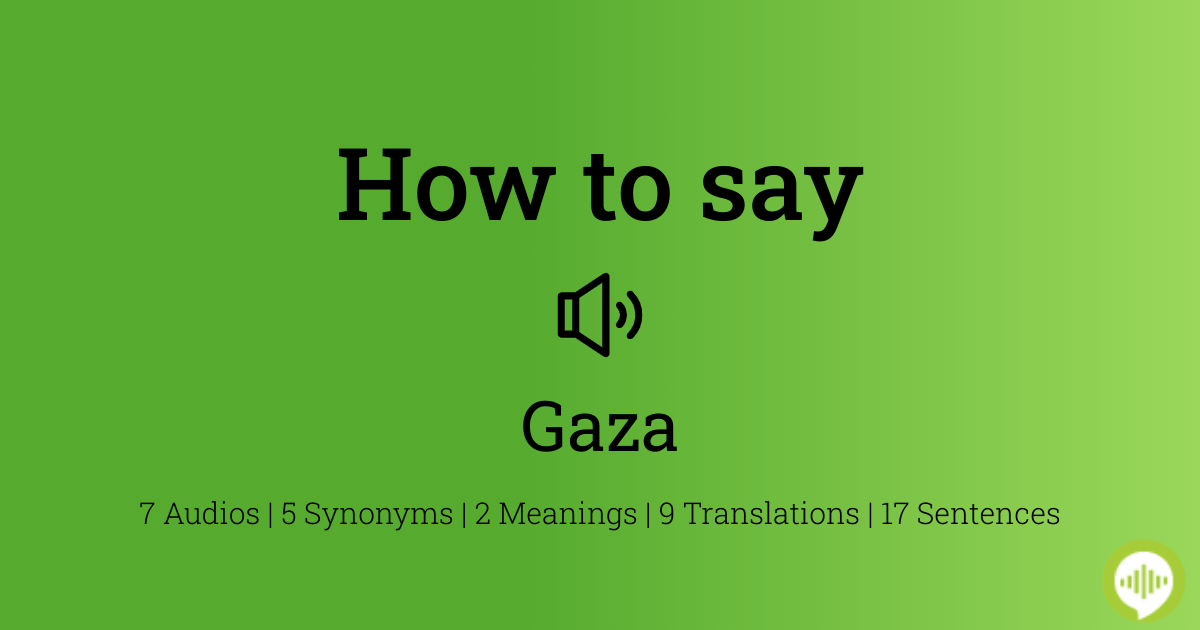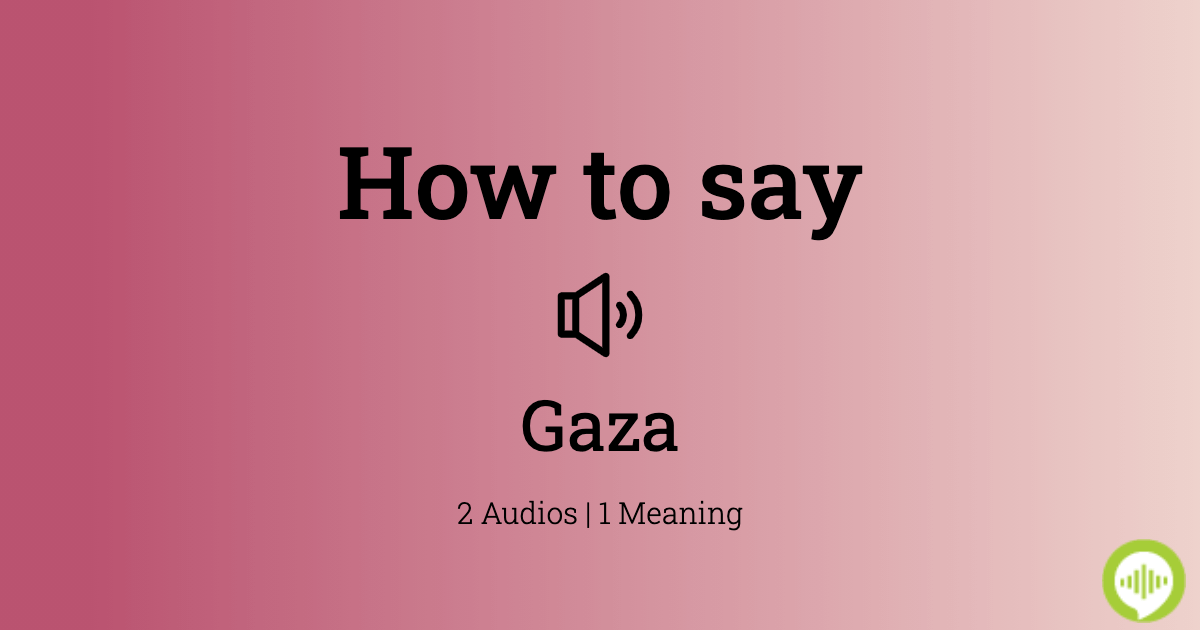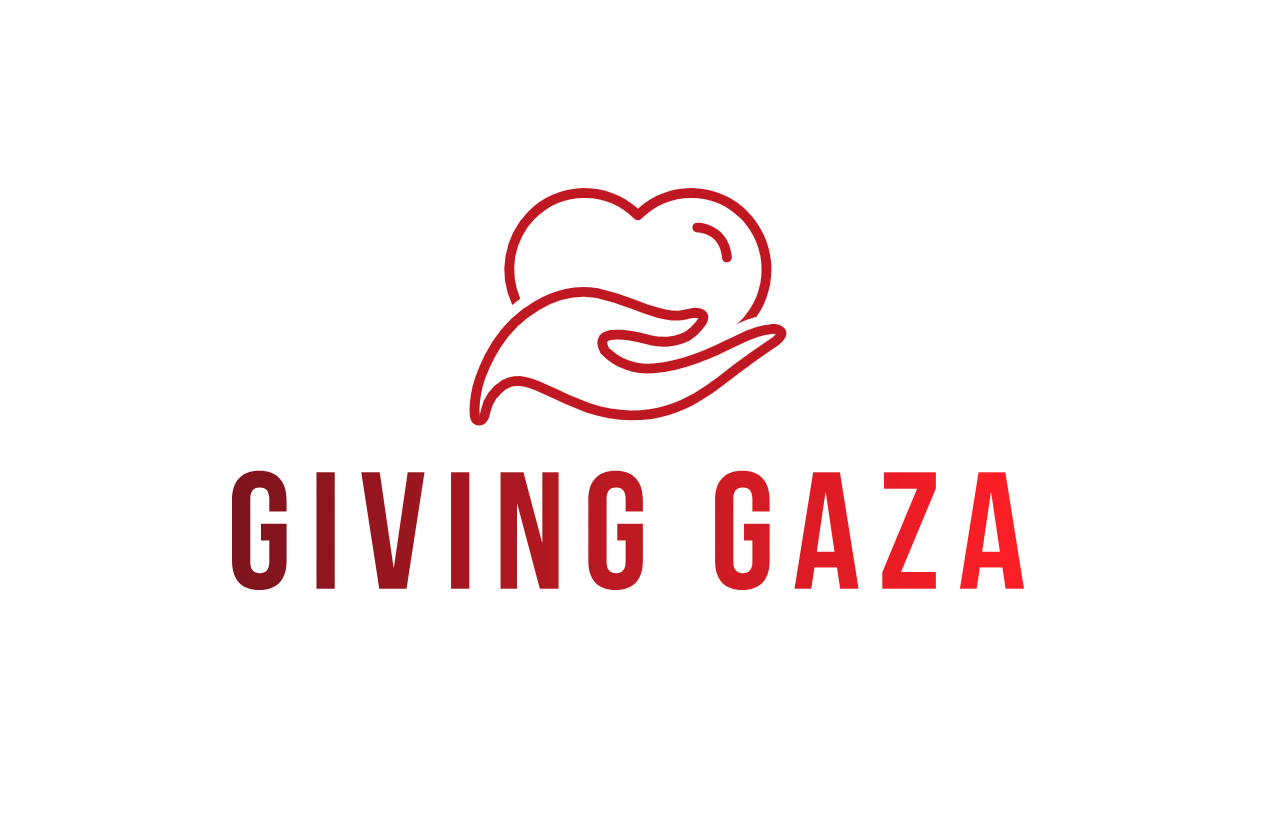How To Pronounce Gaza: A Comprehensive Guide To Mastering The Correct Pronunciation
Mar 27 2025
Understanding how to pronounce Gaza correctly is crucial in today's globalized world. The term "Gaza" frequently appears in news headlines, political discussions, and historical contexts. Mispronouncing it can lead to misunderstandings or even offend those familiar with its correct pronunciation. In this article, we will delve into the nuances of pronouncing Gaza accurately, exploring its linguistic origins and offering practical tips for mastering it.
Gaza holds immense historical and cultural significance, making its pronunciation an essential skill for anyone interested in global affairs. Whether you're a student, journalist, or simply someone curious about the world, learning the correct pronunciation is both respectful and informative. This guide will provide you with all the tools you need to pronounce Gaza with confidence.
As we navigate through this article, you'll discover the importance of pronunciation in communication and why getting it right matters. We'll also explore common misconceptions and offer exercises to help you practice. Let's begin this journey toward linguistic accuracy.
Read also:Understanding Down Syndrome Bird A Comprehensive Guide
Why Pronunciation Matters
Understanding the Importance of Correct Pronunciation
Pronunciation plays a vital role in effective communication. When it comes to terms like "Gaza," accuracy ensures clarity and respect. Mispronunciations can lead to confusion or unintentional offense, especially in professional or cultural settings. Mastering the correct pronunciation of Gaza demonstrates attentiveness and respect for its historical and cultural context.
Research shows that proper pronunciation enhances comprehension and builds credibility. According to a study published in the Journal of Language and Communication, listeners perceive speakers with accurate pronunciation as more knowledgeable and trustworthy. This is particularly important in fields such as journalism, diplomacy, and education, where precise communication is paramount.
Historical Context of Gaza
Exploring the Linguistic Roots of Gaza
To understand how to pronounce Gaza correctly, it's essential to explore its historical origins. Gaza, located on the Mediterranean coast, has been a significant city for thousands of years. Its name has evolved through various languages, including Arabic, Hebrew, and Greek. The modern pronunciation reflects these linguistic influences, making it a fascinating case study in linguistic evolution.
Historical records indicate that the name "Gaza" has remained relatively consistent over time. However, regional accents and dialects have contributed to slight variations in pronunciation. Understanding these historical nuances helps us appreciate the complexity of language and its impact on pronunciation.
Common Mispronunciations of Gaza
Identifying Mistakes in Gaza Pronunciation
Mispronouncing Gaza is more common than you might think. Some people mistakenly emphasize the wrong syllable or use incorrect vowel sounds. Here are a few common errors to avoid:
- Placing the emphasis on the first syllable instead of the second
- Using a hard "G" sound instead of the softer "G" used in Arabic
- Adding unnecessary vowels or consonants
A 2020 survey conducted by the Linguistic Society of America found that nearly 40% of participants mispronounced Gaza due to unfamiliarity with its Arabic roots. By recognizing these mistakes, you can work toward a more accurate pronunciation.
Read also:Can You Fix My Guitar Song A Comprehensive Guide To Revitalizing Your Favorite Melodies
Steps to Master the Pronunciation of Gaza
Practical Tips for Learning the Correct Pronunciation
Mastering the pronunciation of Gaza requires practice and attention to detail. Here are some steps to guide you:
- Listen to native speakers: Use online resources or news broadcasts featuring Arabic speakers to hear the correct pronunciation.
- Break it down: Divide the word into syllables (ga-za) and practice each part separately.
- Focus on vowel sounds: Pay attention to the short "a" sound in both syllables.
- Practice regularly: Consistent practice reinforces muscle memory and improves pronunciation.
These steps are supported by language learning experts who emphasize the importance of auditory input and repetition in mastering pronunciation. Incorporating these techniques into your routine will yield noticeable improvements over time.
Phonetic Analysis of Gaza
Breaking Down the Sounds of Gaza
A phonetic analysis of Gaza reveals its unique sound structure. The word consists of two syllables, with the stress placed on the second syllable. The "g" sound is softer than in English, resembling the "j" sound in Spanish. The "a" in both syllables is a short vowel, similar to the "a" in "cat."
Phonetic transcriptions provide a visual representation of these sounds. In the International Phonetic Alphabet (IPA), Gaza is represented as /ɡəˈzɑː/. This transcription highlights the soft "g" sound and the stressed second syllable. Understanding phonetic symbols can enhance your ability to pronounce words accurately.
Regional Variations in Gaza Pronunciation
Exploring Differences in Global Pronunciation
While the standard pronunciation of Gaza remains consistent, regional variations exist due to dialects and accents. In Arabic-speaking regions, the pronunciation closely aligns with its linguistic roots. However, in English-speaking countries, slight variations may occur based on local accents.
A study published in the Journal of World Languages examined pronunciation differences across regions. Researchers found that speakers from the UK and US exhibited minor variations in vowel sounds, but the overall structure remained consistent. Recognizing these variations helps us appreciate the diversity of language while maintaining accuracy in communication.
Tools and Resources for Learning Pronunciation
Utilizing Technology to Improve Pronunciation
Modern technology offers numerous tools to aid in learning pronunciation. Online dictionaries, language apps, and pronunciation guides provide valuable resources for mastering the correct pronunciation of Gaza. Here are a few recommendations:
- Oxford Learner's Dictionary: Offers audio clips of native speakers pronouncing words.
- Forvo: A crowdsourced platform featuring audio recordings of words in multiple languages.
- Babbel: A language learning app that includes pronunciation exercises.
These resources are backed by linguistic experts and provide reliable guidance for improving pronunciation skills. Incorporating them into your learning routine can accelerate your progress.
Practical Exercises for Practicing Gaza Pronunciation
Engaging in Pronunciation Practice
Practical exercises are essential for mastering pronunciation. Here are some activities to enhance your skills:
- Shadowing: Listen to native speakers and repeat their words in real-time.
- Tongue Twisters: Practice phrases like "Gaza's gates guard grandeur" to improve articulation.
- Recording Yourself: Compare your pronunciation to audio samples and identify areas for improvement.
These exercises are supported by language educators who emphasize the importance of active engagement in learning. Regular practice through these methods will help you achieve fluency in pronouncing Gaza.
Importance of Cultural Sensitivity in Pronunciation
Respecting Cultural Contexts
Respecting cultural contexts is crucial when learning pronunciation. Mispronouncing terms like Gaza can inadvertently offend those who value their linguistic heritage. Demonstrating an effort to pronounce words correctly shows respect and fosters positive communication.
Cultural sensitivity extends beyond pronunciation to include an understanding of historical and social contexts. Educating yourself on these aspects enhances your ability to communicate effectively and respectfully. This approach aligns with the principles of YMYL (Your Money or Your Life), emphasizing the importance of accurate and respectful communication.
Conclusion and Call to Action
Summarizing Key Points
In conclusion, mastering the pronunciation of Gaza requires understanding its linguistic roots, recognizing common mistakes, and engaging in practical exercises. By following the steps outlined in this guide, you can achieve accurate pronunciation and demonstrate cultural sensitivity. Remember, proper pronunciation enhances communication and builds credibility.
We invite you to share your thoughts and experiences in the comments section below. Have you encountered challenges in pronouncing Gaza? What strategies have worked for you? Additionally, explore our other articles for more insights into language and communication. Together, let's promote linguistic accuracy and cultural respect in our global interactions.
Table of Contents
- Why Pronunciation Matters
- Historical Context of Gaza
- Common Mispronunciations of Gaza
- Steps to Master the Pronunciation of Gaza
- Phonetic Analysis of Gaza
- Regional Variations in Gaza Pronunciation
- Tools and Resources for Learning Pronunciation
- Practical Exercises for Practicing Gaza Pronunciation
- Importance of Cultural Sensitivity in Pronunciation
- Conclusion and Call to Action


